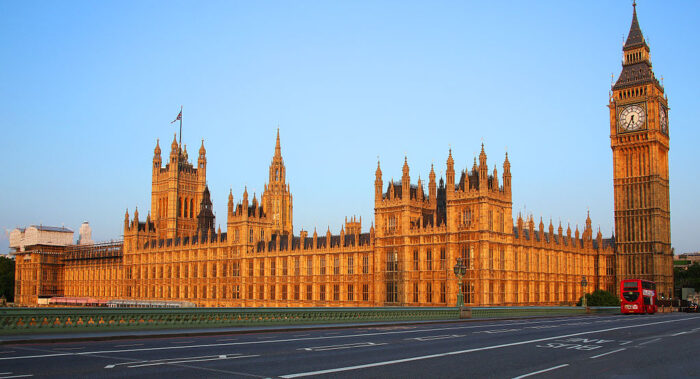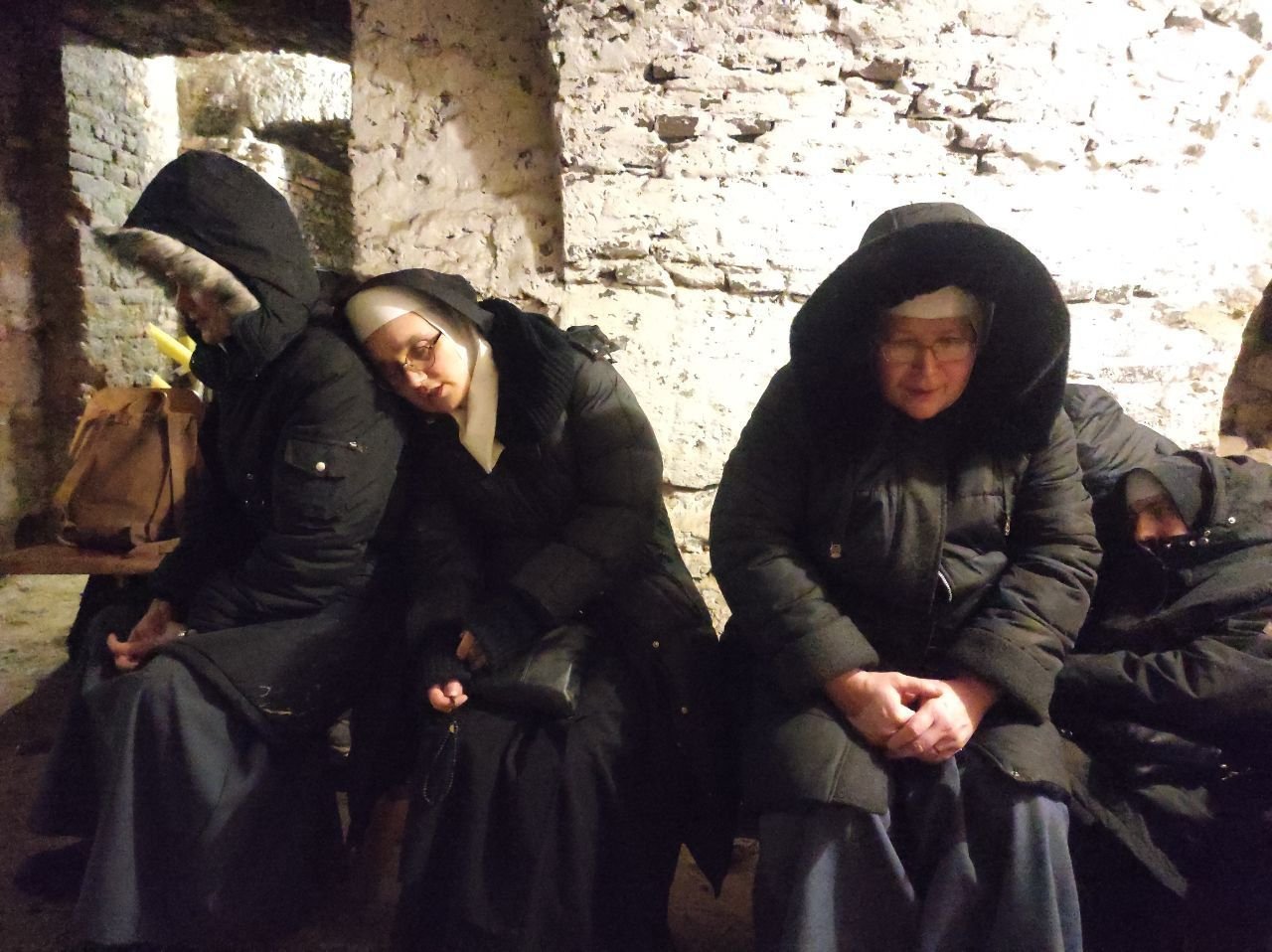
Too many school children are receiving no faith formation at all, according to Fr Patrick Moore, a priest who has been involved in education for the past 20 years.
Speaking to The Irish Catholic, he said: “I think it is absolutely appalling that [many] young people… have no formation in Faith whatsoever. I’m told they have civics classes in which they talk about world religions, you might as well be talking about various species of butterflies. It has little impact on Faith practice – it’s pretty serious”.
Fr Moore said that in his experience under the Education Training Boards (ETBs), established in 2013, there has been an “appalling lack of faith formation”.
He commented that it would be “terrible negligence” to allow children to receive no faith formation regardless of changing demographics.

‘Assisted dying’ for reasons solely related to an eating disorder (ED) has occurred in multiple countries, including those which restrict the practice to individuals with a terminal condition.
That’s according to a new systematic review published in the interdisciplinary journal Frontiers in Psychiatry.
The aims of the review were to identify all known cases of assisted suicide among patients with EDs and to describe the clinical rationales used to grant patients’ requests for assisted suicide.
The study identified at least 60 cases of women in US, Netherlands and Belgium who availed of assisted suicide because they suffered with anorexia. Most were young women.
Reports emphasised that patients with EDs who underwent assisted suicide were not necessarily terminally ill.
However, most government reports did not include descriptive-enough data to verify psychiatric conditions.

The UK’s Health Minister has welcomed a ruling by the High Court that a short-term ban on puberty blockers introduced by the previous government was lawful.
The emergency ban, effective between 3 June and 3 September, was implemented by the Conservatives as its final act on 30 May to “address risks to patient safety”.
It came after the independent Cass Review into gender identity services found there is “no good evidence” to justify their prescription.
Health Secretary Wes Streeting welcomed the decision saying: “Children’s healthcare must be evidence led. Dr Cass’ review found there was insufficient evidence that puberty blockers are safe and effective for children with gender dysphoria and gender incongruence.
“We must therefore act cautiously and with care when it comes to this vulnerable group of young people”, he said.

A sperm donor has won parental rights to his biological son over the claims of the child’s lesbian birth mother, who is not the biological mother, in a landmark case in Australia.
The boy was conceived via IVF and the female couple chose donor eggs and donor sperm.
All parties were known to each other and the sperm donor, the child’s father, regularly spent time with the boy, including overnight stays.
The man said he agreed to the arrangement only on condition that he would be involved in the child’s life.
When the two mothers broke up, it triggered the messy 3-way custody battle.
The trial judge ruled that the father was not merely ‘a sperm donor’ as he had provided support and care to the boy, now 9, since the time of his birth.
‘(The mothers) do not enjoy any superiority over any other person keenly interested in (the boy’s) welfare, namely (the sperm donor).’
The birth mother, who lost her parental rights, had wanted sole responsibility of the child.
But the birth mother’s ex-partner, who had turned her life around following the breakup, fought for shared responsibility with the sperm donor father
The judge ruled the nine-year-old’s best interests meant giving shared responsibility to the birth mother’s ex-partner and the sperm donor father, leaving the birth mother out entirely.

A scene from the opening ceremony of the Olympic games in Paris, based on the painting of the Last Supper by Leonardo Da Vinci, has sparked widespread condemnation including from the France bishops, after drag queens were used to depict Christ and the apostles.
The French Bishops criticised the “scenes of derision and mockery of Christianity, which we deeply deplore.”
In the US, Bishop Robert Barron, called it a “gross mockery of the Last Supper.”
He said the ‘blasphemous’ act was emblematic of a “deeply secularist postmodern society” that identifies Christianity as its enemy.
German Bishop Stefan Oster called the “queer Last Supper” scene “a low point and completely superfluous in the staging”.
While the ceremony’s director Thomas Jolly, claimed that the scene is an “interpretation of the Greek God Dionysus” a statement from ceremony’s producers, said that it was in fact inspired by Da Vinci’s famous painting.
“For the ‘Festivities’ segment, Thomas Jolly took inspiration from Leonardo da Vinci’s famous painting to create the setting,” the producers said in the statement. “… [Jolly] is not the first artist to make a reference to what is a world-famous work of art. From Andy Warhol to ‘The Simpsons,’ many have done it before him.”

Almost half of childless Americans between the ages of 18 and 49 say they are unlikely to ever have kids, with many saying they just don’t want any. The share giving this answer has risen from 37pc to 47pc in just five years, according to a Pew Research Center survey. America’s fertility rate is now below replacement level.
The study interviewed 2,542 adults ages 50 and older who don’t have children and 770 adults ages 18 to 49 who say they are not too, or not at all, likely to have them.
What is notable is that many did not cite affordability as their main reason for not wanting children but mentioned lifestyle reasons instead.
About four-in-ten of those in the older group (38%) say there was a time when they wanted to have children. A smaller but sizable share (32%) say they never wanted children, and 25% say they weren’t sure one way or the other. Few say they frequently felt pressure to have children from family, friends or society in general.
Reasons for not having children – or being unlikely to ever have them – differ between the older and younger groups. The top response for those ages 50 and older is that it just didn’t happen. Meanwhile, those in the younger group are most likely to say they just don’t want to have kids. Women younger than 50 are especially likely to say they just don’t want to have children (64% vs. 50% of men in this group).

An assisted suicide Bill was presented in the House of Lords yesterday as sponsor Lord Falconer attempts to change the current ban on the practice for the seventh time.
While the Bill’s details have not yet been released, it is likely to be similar to one of Lord Falconer’s previous assisted suicide bills.
Private Members’ Bills rarely become law and are even less likely to become law when they have started in the House of Lords.
They are, however, an opportunity to raise the profile of a particular issue and can therefore indirectly influence Government-backed legislation.

Three Christians have been killed and several others kidnapped in an attack on a village near Movmove in the Democratic Republic of Congo (DRC).
Militants from the Islamist Allied Democratic Forces (ADF) launched an assault on the community on the night of July 16, according to Christian persecution watchdog International Christian Concern (ICC).
“We did not realize that they had invaded our village until they landed on us in the house and started slaughtering people while speaking some Islamic words,” a survivor recalled. “That is the moment I realized there was danger. I ran passing through the behind door of our house to the bush, and this is how I managed to survive these killings.”
The attackers also reportedly set fire to several homes.
In response to the attack, the Bishop of the Anglican Church of Beni urged the Congolese Armed Forces to protect the vulnerable community by strengthening the military units based in the area.

Russia has exported the worst practices of religious intolerance to the territories it occupies in Ukraine, according to the US based Helsinki Commission.
In hearings in Washington DC this week on “Russia’s persecution of Ukrainian Christians”, the Commission said Russia has engaged in routine kidnapping, hostage-taking, violence against civilians, and suppression of Ukrainian culture and language.
“Occupying authorities under orders from the Kremlin have been particularly harsh toward Protestant Christians and institutions, often painting them as agents of the United States,” a press release said.
Mark Sergeev, a Ukrainian evangelical pastor who escaped from occupied Melitopol testified that conditions in Russian-occupied Ukraine are worse now than they were during Soviet times.
Penn State professor Catherine Wanner told the commission there is “no place for Protestants in the Russian world.” According to Wanner, who previously worked for the Ukrainian Research Institute at Harvard University, evangelicals in Russia are considered “apostates,” “traitors,” and “spies.”

Kamala Harris, who is very likely to the Democratic nominee in the US presidential election, “will put abortion rights…right at at the centre of this campaign”, according to Congressman Jamie Raskin, a fellow Democrat.
Jessica Mackler of the pro-abortion ‘Emily’s List, has said: “There’s a real electric energy right now in the party”, adding “people are fired up and they are excited about her. And a lot of that is about the leadership that she provides on reproductive rights.”
However, pro-life groups have hit back. “Harris is so committed to abortion that she can’t see anything else — including the developmental stages of children before birth or the real needs of women,” said Marjorie Dannenfelser, of SBA Pro-Life America.
She added: “While Joe Biden has trouble saying the word abortion, Kamala Harris shouts it.”